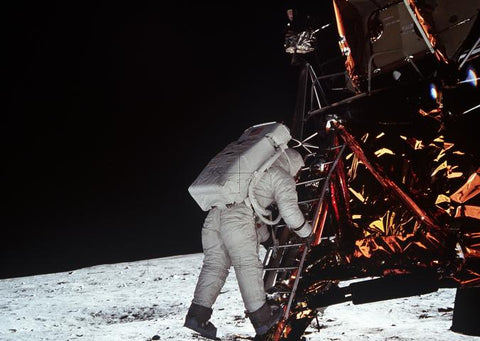On July 20, 1969, the world held its breath as humanity accomplished the seemingly impossible: landing astronauts on the Moon. The Apollo Moon landing project, a monumental endeavor by NASA, stands as a testament to human determination, ingenuity, and the unyielding spirit of exploration. In this blog post, we embark on a journey through the Apollo program, exploring the historic moments that marked humanity's giant leap into space.
The Apollo Program Takes Flight
The Cold War Context: The Apollo program emerged during the Cold War rivalry between the United States and the Soviet Union. It was a race to demonstrate technological superiority, and space exploration became the battleground.
Kennedy's Vision: President John F. Kennedy's famous 1961 speech set the ambitious goal of landing an American on the Moon and returning them safely to Earth before the end of the decade. This vision rallied the nation's scientists, engineers, and astronauts.
Apollo 11: The Pinnacle of Achievement
Lunar Module Eagle: On July 20, 1969, Apollo 11's lunar module, named Eagle, touched down on the Moon's surface. Astronauts Neil Armstrong and Buzz Aldrin became the first humans to set foot on another celestial body, while Michael Collins orbited above in the command module, Columbia.
One Small Step: Neil Armstrong's famous words as he stepped onto the lunar surface, "That's one small step for [a] man, one giant leap for mankind," echoed around the world, marking an extraordinary moment in human history.
Scientific Discoveries and Technological Advancements
Rock Samples: The Apollo missions brought back lunar rock samples that revolutionized our understanding of the Moon's composition, geology, and origin.
Technological Innovations: The Apollo program accelerated technological advancements, leading to developments such as integrated circuits, which later became crucial in various industries.
The End of an Era
Apollo 17: The final Apollo mission, Apollo 17, launched in 1972. After that, budget constraints and shifting priorities led to the cancellation of the remaining missions, leaving only six successful lunar landings.
Space Shuttle Era: The end of the Apollo program marked the transition to the Space Shuttle era, focusing on Earth's orbit and space station projects.
The Apollo Moon landing project remains one of the most remarkable achievements in human history. It exemplified the ability of humanity to overcome challenges, push boundaries, and achieve the seemingly impossible. The iconic images of astronauts walking on the lunar surface inspired generations to pursue careers in science, engineering, and space exploration.
As we celebrate the legacy of Apollo, we are reminded of the enduring spirit of exploration that continues to drive our quest to reach for the stars. The footsteps left on the Moon are not just marks in the lunar soil; they are imprints on the collective human consciousness, forever reminding us that with determination, courage, and a shared vision, we can accomplish feats beyond our wildest dreams. The Apollo program was not just a giant leap for a few astronauts; it was a giant leap for all of humanity.






